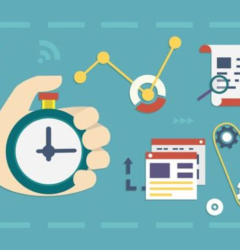27 Sep

|
Getting your Trinity Audio player ready...
|
Dogs are more than just pets; they are family members who bring joy, companionship, and unconditional love into our lives. As responsible dog owners, we must ensure their health and happiness. Here are some top strategies for maintaining your pup’s well-being, covering everything from nutrition to mental stimulation.
Table of Contents
1. Balanced Nutrition
Just like humans, dogs require a well-rounded diet to thrive. High-quality dog food should contain the right balance of proteins, fats, carbohydrates, vitamins, and minerals. When selecting food, consider your dog’s age, size, breed, and any specific health concerns.
Tips for Choosing the Right Food:
- Consult Your Veterinarian: They can provide recommendations based on your dog’s individual needs.
- Read Ingredients: Look for foods with real meat as the first ingredient, and avoid fillers like corn and soy.
- Consider Grain-Free Options: Some dogs may have sensitivities to grains; however, this isn’t necessary for all dogs.
Homemade Dog Food
If you’re inclined to make your dog food, ensure you’re including all the necessary nutrients. Recipes should be balanced with proteins (like chicken or beef), vegetables (like carrots and spinach), and grains (like brown rice or quinoa). Always consult a vet or a canine nutritionist before switching to a homemade diet to avoid deficiencies.
2. Regular Exercise
Physical activity is crucial for a dog’s physical and mental health. Exercise helps maintain a healthy weight, promotes cardiovascular health, and reduces behavioral problems caused by pent-up energy.
Exercise Recommendations:
- Daily Walks: Aim for at least 30 minutes of walking each day, adjusting based on your dog’s energy level and breed.
- Playtime: Engage in activities like fetch, tug-of-war, or agility training to keep things exciting.
- Socialization: Trips to the dog park allow your pup to socialize with other dogs, which can be beneficial for their mental health.
3. Mental Stimulation
Just as physical exercise is vital, so is mental stimulation. Dogs need to challenge their minds to prevent boredom and destructive behaviors.
Activities for Mental Engagement:
- Interactive Toys: Puzzle toys that dispense treats can keep your dog entertained while encouraging problem-solving.
- Training Sessions: Teaching new tricks or reinforcing basic commands provides mental stimulation and strengthens your bond.
- Scent Games: Hide treats around your home and let your dog use their nose to find them. This taps into their instincts and provides mental exercise.
4. Regular Veterinary Check-ups
Routine vet visits are essential for maintaining your dog’s health. Regular check-ups help catch potential issues early and ensure your pup is up to date on vaccinations and preventive care.
What to Expect During a Vet Visit:
- Wellness Exam: The vet will perform a physical examination to check your dog’s overall health.
- Vaccinations: Ensure your dog receives all necessary vaccinations based on their lifestyle and risk factors.
- Parasite Prevention: Discuss flea, tick, and heartworm prevention with your vet, as these are crucial for your dog’s health.
5. Proper Grooming
Grooming is not just about keeping your dog looking good; it also contributes to their overall health. Regular grooming helps prevent skin issues, and matting, and can even detect lumps or skin problems early.
Grooming Essentials:
- Brushing: Depending on your dog’s coat type, regular brushing along with using scissors for dog grooming can help minimize shedding and maintain a healthy coat.
- Bathing: Use a dog-specific shampoo and bathe your dog every few months or as needed.
- Nail Trimming: Keep your dog’s nails trimmed to prevent discomfort and potential injury. If you’re unsure, your vet can show you how to do it safely.
6. Positive Reinforcement Training
Training your dog using positive reinforcement techniques fosters a healthy, happy relationship. This approach builds trust and helps your pup understand what behaviors are expected of them.
Effective Training Tips:
- Use Treats Wisely: Reward good behavior with treats, praise, or playtime.
- Be Consistent: Use the same commands and reward systems to reinforce learning.
- Stay Patient: Every dog learns at their own pace, so be patient and encouraging.
7. Hydration
Always ensure your dog has access to fresh, clean water. Proper hydration is essential for digestion, temperature regulation, and overall health.
Hydration Tips:
- Change Water Daily: Ensure that your dog’s water bowl is clean and filled with fresh water every day.
- Monitor Intake: If you notice your dog drinking excessively or not enough, consult your veterinarian.
In Conclusion
A happy pup is a healthy pup! By implementing these strategies, you can ensure your dog enjoys a long, fulfilling life. Remember, your dog relies on you for their care and well-being. With your love and attention, your furry friend will thrive both physically and emotionally, making for a happy, harmonious household.


